15 Facts About Oceans on Earth And How They Are Related To Space
8th Jun 2024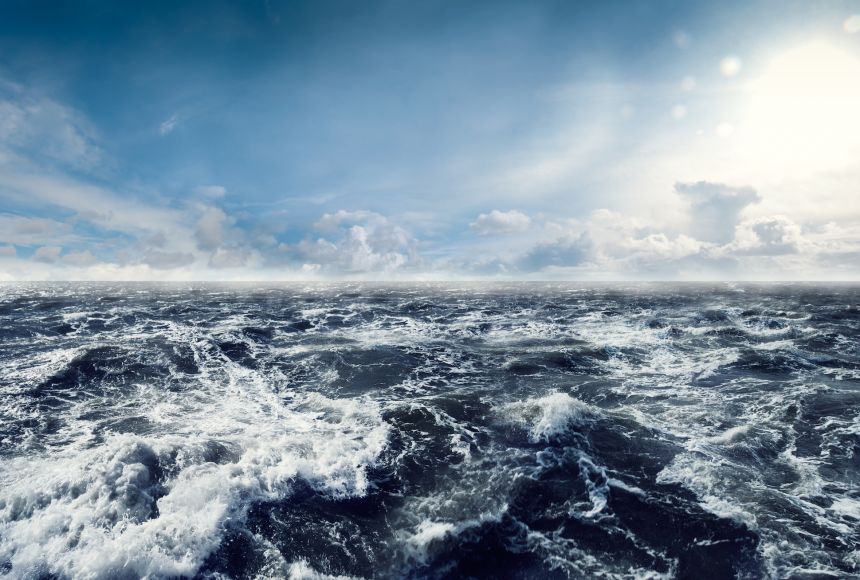
On 8th June, we celebrate the World Ocean Day. The ocean’s importance for our life here on Earth is a well-known fact, but did you know that the ocean has much in common with space? We collected the most mind-blowing facts about the oceans and how they are related to space.
1. Maps Of Mars VS Maps Of Oceans On Earth
We have better maps of Mars than of the oceans on Earth. Around 80% of ocean depths are “unmapped, unobserved or unexplored,” according to the U.S. National Oceanic and Atmospheric Administration (NOAA).
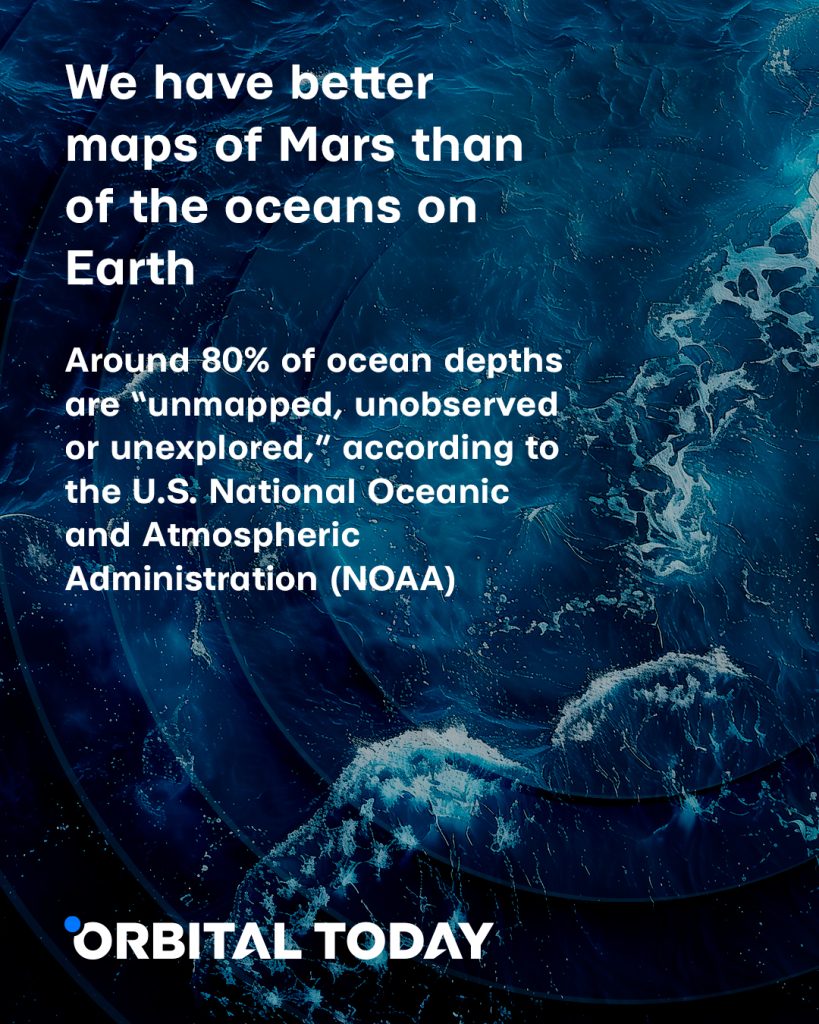
2. Humanity Has Explored Only One Per Cent More Ocean Than Space
Humanity has only examined roughly 5% of the oceans. If we assume that humanity has explored most of what is visible in the universe, that only comprises roughly 4% of everything in the universe. The remaining 96% is dark matter and dark energy.
3. Challenger Deep VS Everest
The deepest known point on Earth is Challenger Deep in the Marianas Trench. If you could take Mt. Everest and place it at the bottom of the trench there would still be over a hundred miles of ocean above it.
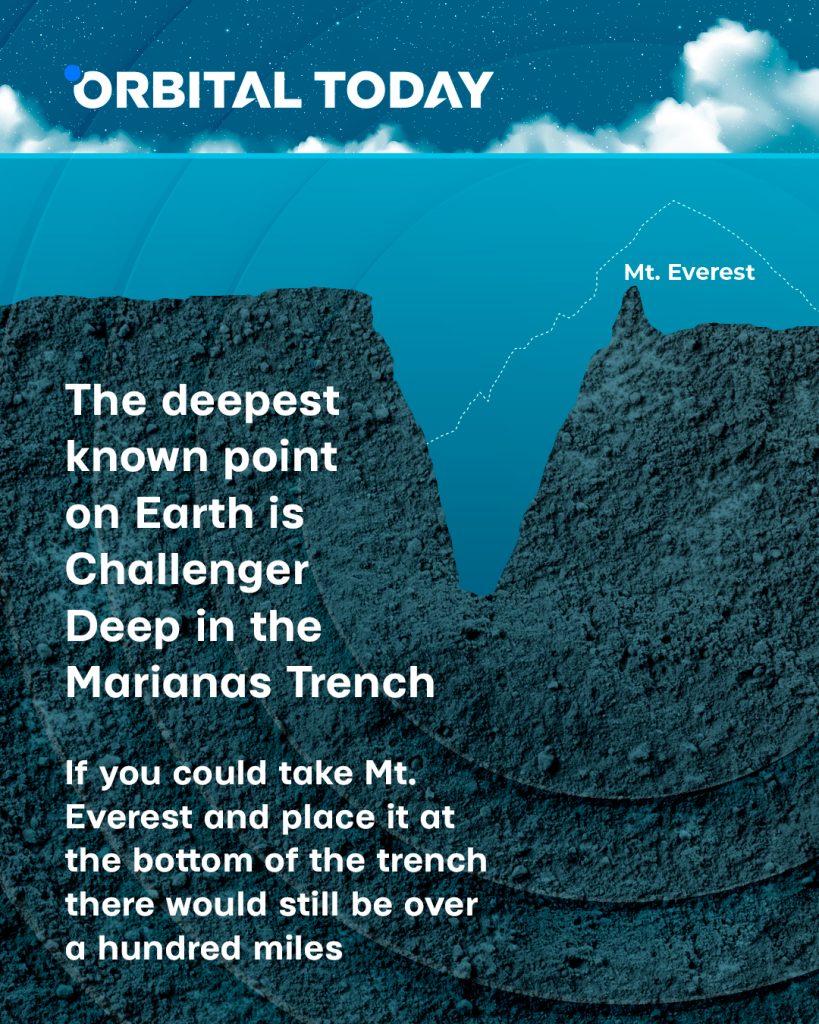
4. Less Than 10% Of The World’s Ocean, And Less Than 50% Of U.S. Waters, Have Been Mapped
That’s not very much coverage—and there’s a lot to explore there! Humans know more about outer space’s physical and chemical properties than about planet Earth’s deep ocean regions.
5. There Were More People On The Moon Than In The Mariana Trench
12 people have been on the lunar surface, but only 3 have descended to the Marianas Trench. One of those three was film director and producer James Cameron.
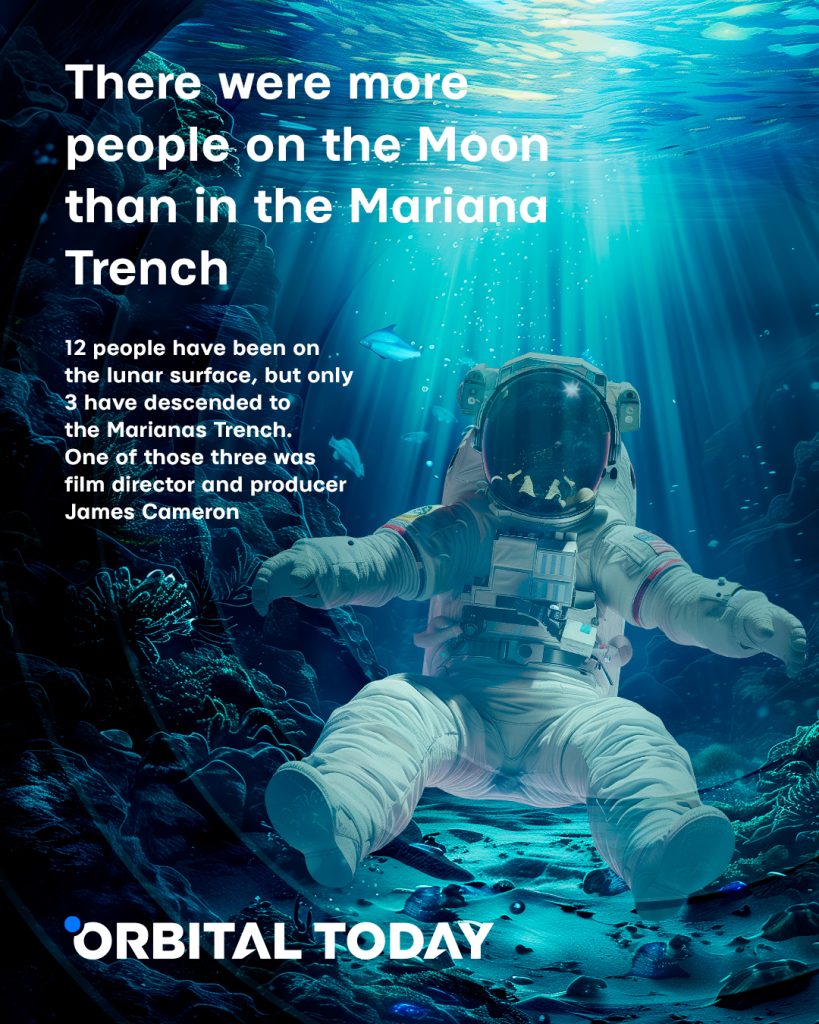
6. Water On Earth Is 97% Salt Water, 3% Fresh
Just 3,5%of Earth’s water is fresh—that is, with few salts in it. You can find Earth’s freshwater in our lakes, rivers, and streams, but don’t forget groundwater and glaciers. Over 68 per cent of Earth’s freshwater is locked up in ice and glaciers. And another 30 per cent is in groundwater.
7. Earth’s Oceans Are Not Unique In The Universe
Three of Jupiter’s moons (Europa, Ganymede, and Callisto) and two of Saturn’s (Enceladus and Titan) are thought to have underwater seas.
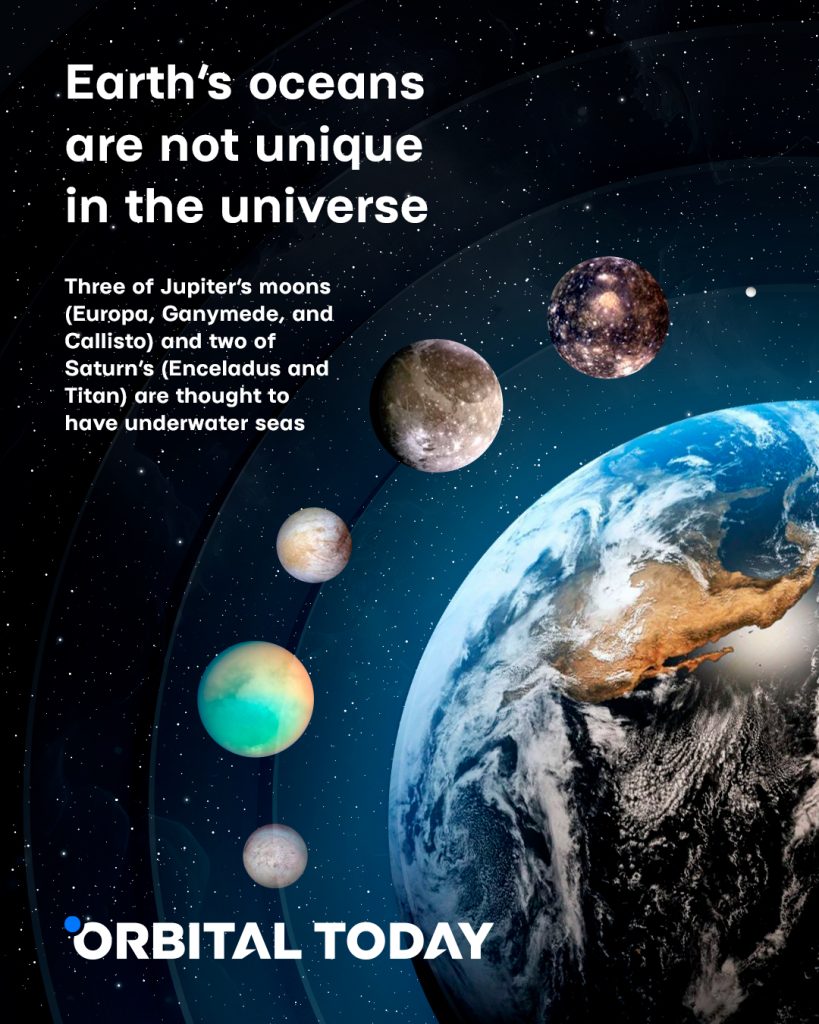
8. The Ocean Is Literally Our Planet’s “Heart”
Ocean currents circulate vital heat and moisture around the globe, similar to the human circulatory system. Physical oceanic processes like the El Niño-Southern Oscillation (ENSO) in the Pacific Ocean basin and the Gulf Stream current in the Atlantic can influence climate worldwide. Just like our hearts must be monitored and cared for to ensure long-term health, USGS studies our oceans to better understand these processes and how they influence our climate.
9. You Are More Likely To Survive Longer In Space Than In The Ocean
2 Minutes — that’s how long a human can survive in space unprotected. However, if to put a human into the depths of an ocean, they won’t even have time to catch breath due to water pressure.
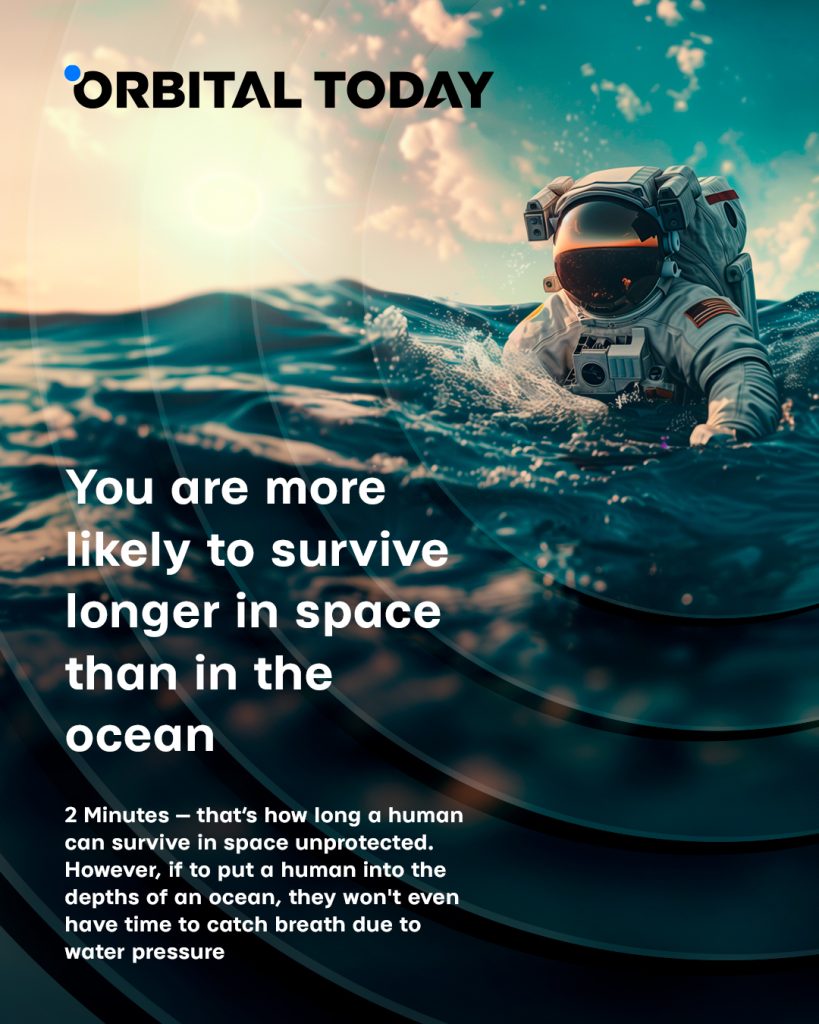
10. The Ocean Provides More Than Half Of The Oxygen We Breathe
Scientists estimate that 50-80% of the oxygen production on Earth comes from marine photosynthesis. The majority of this production is from oceanic plankton — drifting plants, algae, and some bacteria that can photosynthesize.
11. The Pacific Ocean VS The Moon
At its widest point, from Indonesia to Colombia, the Pacific Ocean is 12,300 miles (19,300 kilometres) across, five times more than the diameter of the moon.
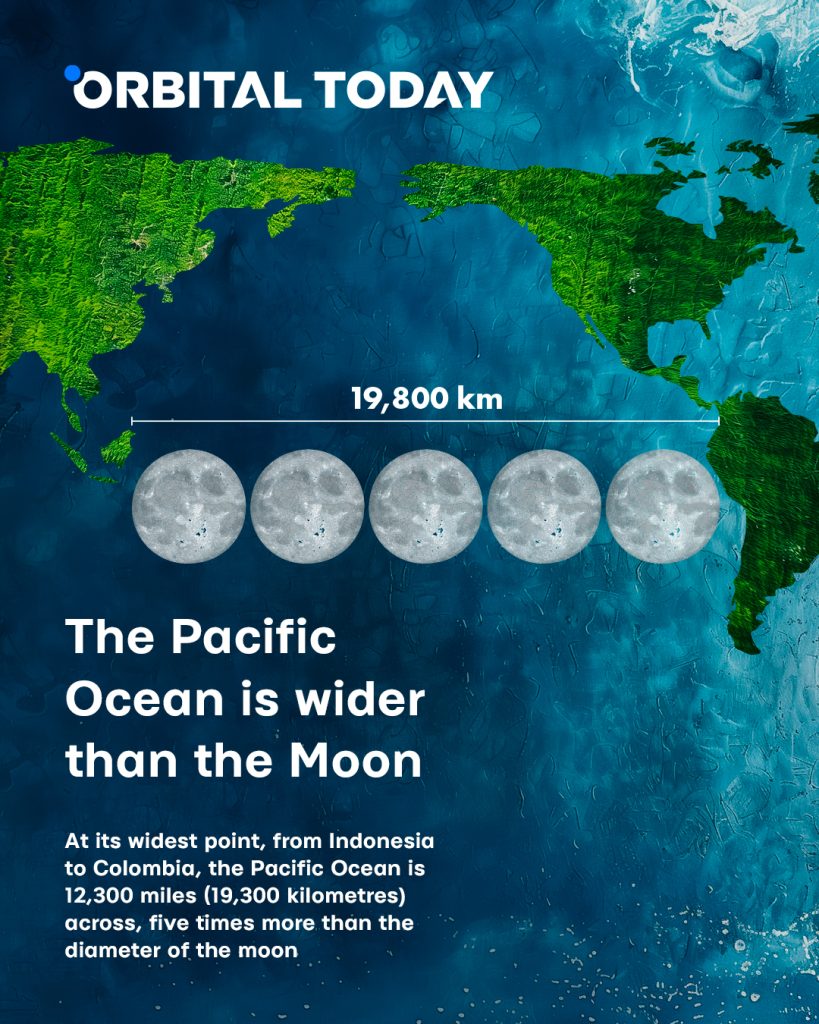
12. Thanks To The Ocean, Most Of Our Planet Is Dark
The Earth’s oceans have an average depth of 12,100 feet, and because there is rarely any significant light beyond 600 feet, everything below that point is dark. Seeing as water makes up most of the planet, this means that most of Earth exists in absolute darkness all the time.
13. There Are Black Holes In The Ocean
There are black holes in oceans, commonly known as ocean eddies, which are strong vortexes of water powerful enough to devour anything in its path.
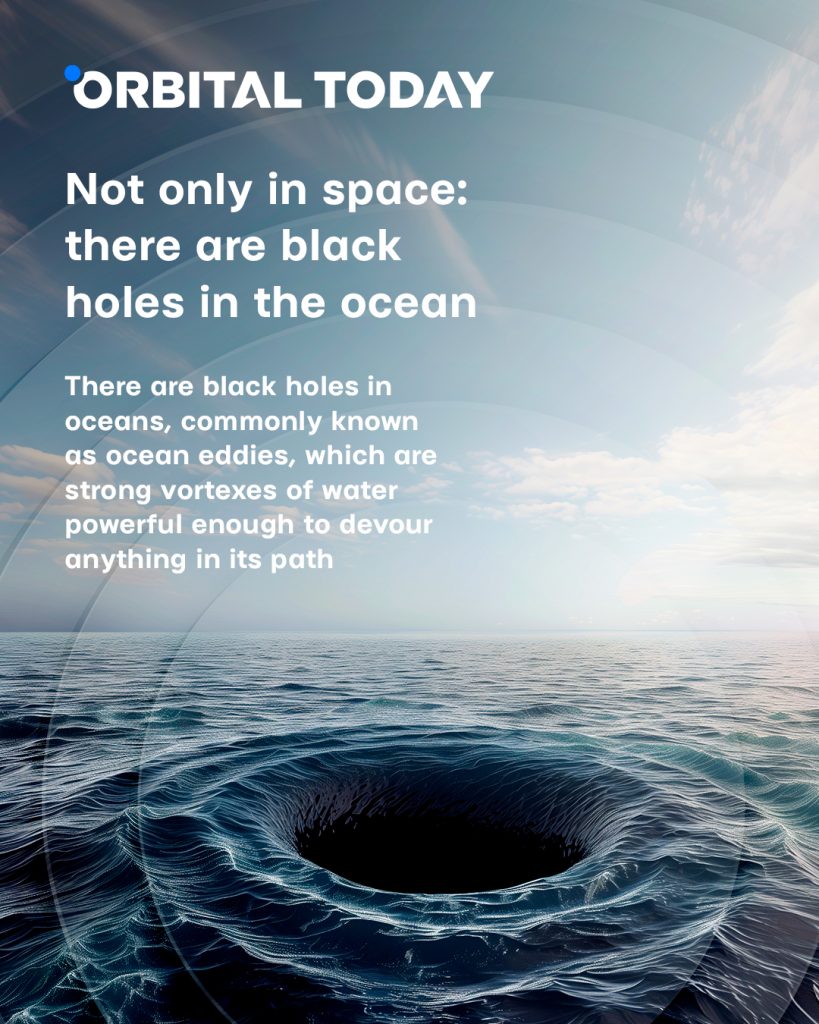
14. We Can Go Further Into Space Than We Can Go Beneath The Ocean
The Mariana Trench, the deepest part of the ocean, reaches approximately 36,000 feet. In contrast, the International Space Station orbits at an altitude of about 250 miles above Earth. Note, 1 mile is 5280 feet, so 250 miles is 1,320,000 feet.
15. There Are “Aliens” Living In The Ocean
While the ocean remains largely unexplored, we occasionally get a glimpse of the weird and wonderful creatures that eke out a living in the deep. Some look totally out-of-this-world.
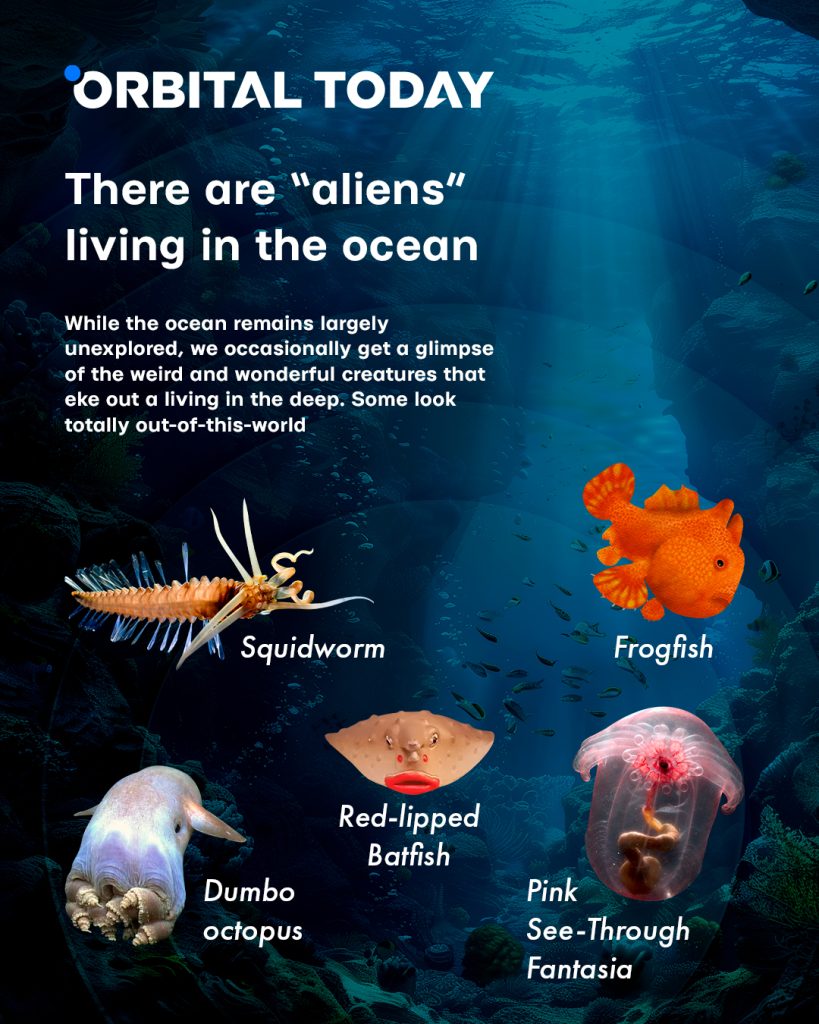






Thank you for your comment! It will be visible on the site after moderation.